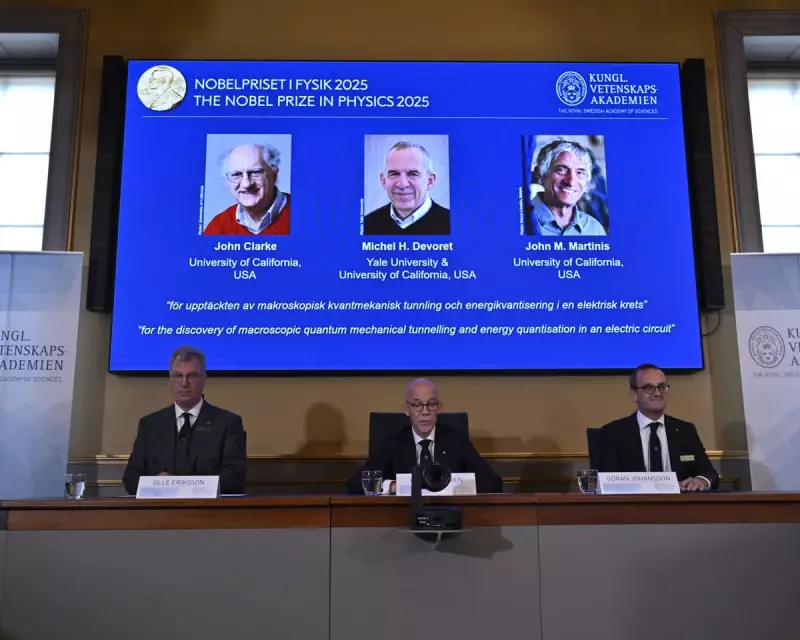
In a stunning recognition of work that could redefine the future of technology, the Royal Swedish Academy of Sciences has awarded the 2025 Nobel Prize in Physics to three visionary scientists for their revolutionary contributions to quantum mechanics.
The Quantum Triumvirate
The prestigious honour goes to Anton Zeilinger of the University of Vienna, alongside John Clauser and Alain Aspect, for their decades-long investigation into quantum entanglement - that mysterious phenomenon Albert Einstein once famously dismissed as "spooky action at a distance."
Their collective work has not only proven Einstein wrong but has opened the door to technologies that seemed like science fiction just a generation ago.
What is Quantum Entanglement?
At the heart of their achievement lies one of physics' most bewildering concepts. Quantum entanglement occurs when two particles become inextricably linked, regardless of the distance separating them. Change one particle, and its partner responds instantly - even if they're light-years apart.
"This year's laureates have demonstrated that quantum mechanics isn't just theoretical - it's the foundation for technologies that will shape our future," stated Professor Anders Irbäck, Chair of the Nobel Committee for Physics.
The Practical Revolution
While the science sounds abstract, its applications are profoundly practical:
- Unhackable communications through quantum encryption
- Quantum computers capable of solving problems beyond the reach of today's supercomputers
- Ultra-precise sensors for medical imaging and navigation
- Advanced scientific instruments that could reveal new secrets of the universe
The laureates' work has moved quantum phenomena from laboratory curiosities to the building blocks of next-generation technology.
A Long Road to Recognition
The journey to this Nobel Prize spans more than half a century. John Clauser conducted his pioneering experiments in the 1970s, followed by Alain Aspect's refined work in the 1980s. Anton Zeilinger then took the research further, demonstrating quantum teleportation and developing practical applications.
"We were driven by curiosity about how nature really works," Zeilinger commented after receiving the news. "To see this fundamental research now enabling new technologies is deeply rewarding."
What This Means for Britain's Tech Future
For the United Kingdom, already a leader in quantum research with significant government investment, this Nobel recognition underscores the strategic importance of quantum technologies. British universities and companies are at the forefront of developing quantum computers and secure communication systems that could transform everything from financial services to national security.
The 2025 Nobel Prize in Physics not only honours three brilliant minds but signals that the quantum future - once confined to theoretical discussions - is now arriving at our doorstep.





